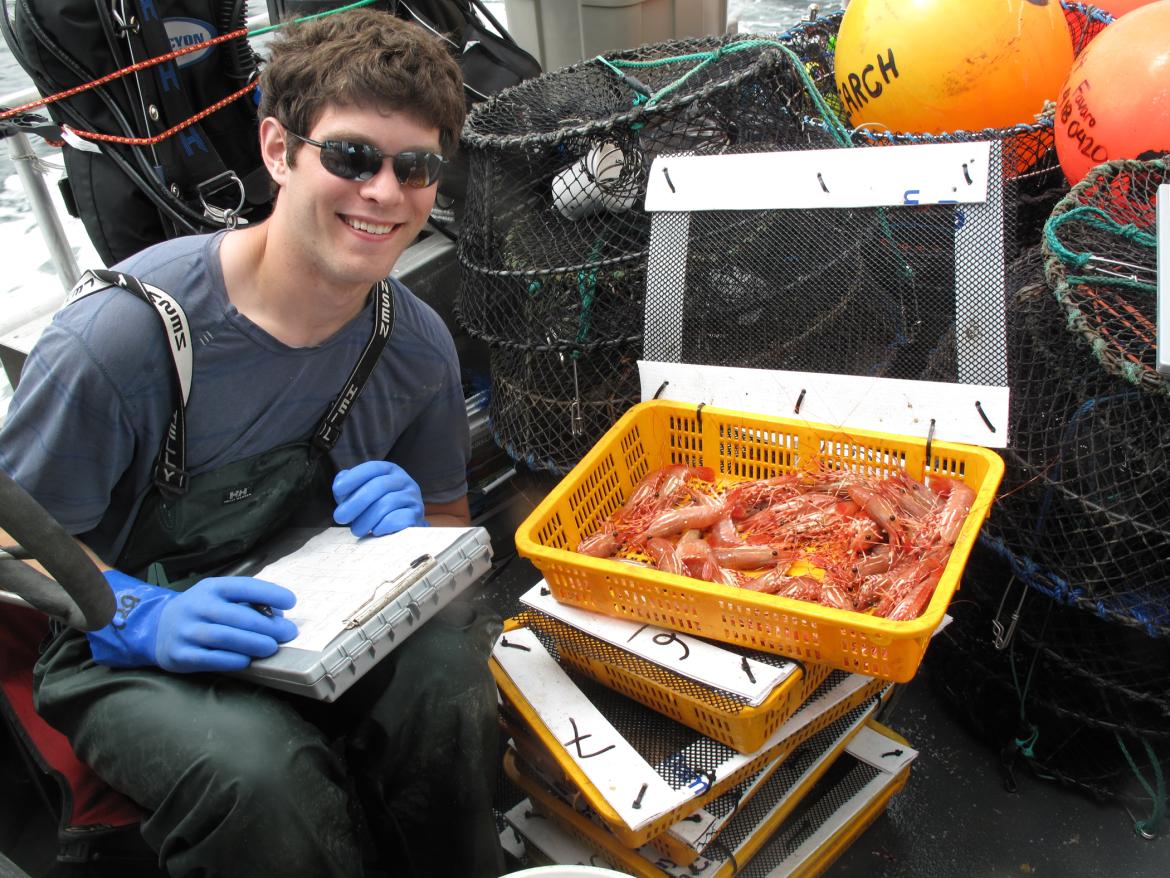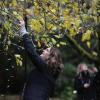
January 13, 2012 - 8:45am
A doctoral student under the supervision of Vancouver Island University faculty member Stefanie Duff is on his way to Australia after receiving a prestigious international research award.
Brett Favaro received the Australian Endeavour Award and leaves for the University of Queensland in February to study with world-renowned biology professor Hugh Possingham for three months.
“Brett will be taking ideas created here at VIU and at Simon Fraser University (SFU) regarding sustainable practices in prawn fishing to Australia in exchange for time to learn about their practices,” explained Duff, who teaches in VIU’s Fisheries and Aquaculture department. “He is the star of this story. He brought a lot of depth and breadth to our research. I’m very excited for him.”
Duff hired Favaro in 2008 under a $25,000 grant she received from the Natural Sciences and Engineering Research Council (NSERC) to study ways to make the BC spot prawn fishery more sustainable.
In conversations with the federal Department of Fisheries and Oceans, Duff discovered that BC spot prawn fishers were concerned about the amount of rock fish and other bycatch caught in their prawn traps. “The prawn fishery generates over $35 million annually so they want to keep it sustainable,” said Duff. “Our research goal was to find a way to reduce the bycatch.”
The collaborative nature of Duff and Favaro’s work has attracted support from many agencies. Since their research began, Duff and Favaro have received funding and other support from NSERC, the Mitacs Group, the Pacific Prawn Fishers Association, the Government of British Columbia, and many other stakeholders.
Favaro, who is completing his Ph.D. at Simon Fraser, spent one semester working on the project at the Pacific Biological Station in Nanaimo, conducting field research in the Howe Sound and southern Gulf Islands area.
Not only did he develop a new, more efficient trap that excludes rock fish, he created an inexpensive video recording device called a Trapcam to observe what happens 100 metres below the ocean’s surface.
“The footage –shot at depths too deep for diving - showed a wide variety of ocean animals interacting with the trap,” said Duff. “It was much more diverse than we ever thought. This was exciting because it was the first time this type of research has occurred in the world.
“This research has international ramifications,” Duff added. “Other fisheries can use this type of device to record what happens underwater. Up to now, it’s been blind fishing.”
Favaro said there has been little research into bycatch reduction technology. “Hopefully, others around the world can draw on this work as inspiration in another fishery,” he said.
Their research has been published in the scientific journal Methods in Ecology and Evolution recently, and in a journal called Fisheries Research. Favaro also hopes to publish in the Canadian Journal of Fisheries and Aquatic Sciences.
Favaro isn’t the only doctoral student supervised by VIU faculty. Dr. Duane Barker, who also works in VIU’s Fisheries and Aquaculture department, is also supervising a Ph.D. candidate.
“Our faculty are pleased to supervise doctoral students from larger institutions,” said Duff. “It’s excellent experience for us as faculty members because of the collaboration and international connections that often arise. I’m also able to show my undergraduate students at VIU that I remain current and engaged in innovative and exciting research in my field.”
Favaro is co-supervised by Dr. Isabelle Côté, professor of biology at SFU where Duff serves as an adjunct professor.
Tags: In the Community






